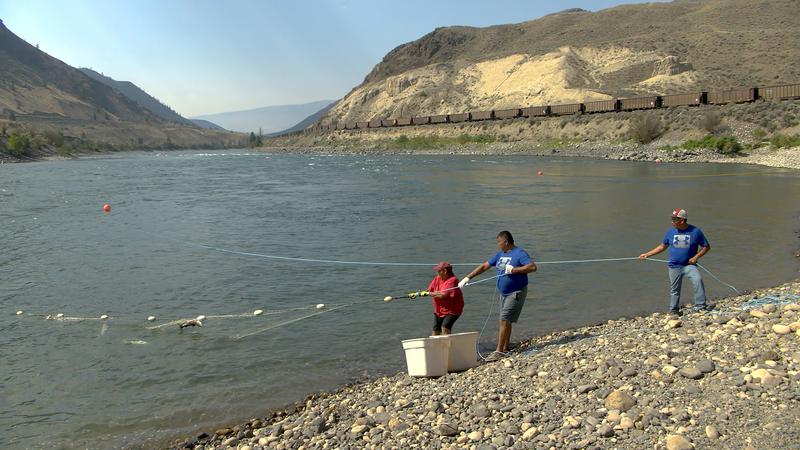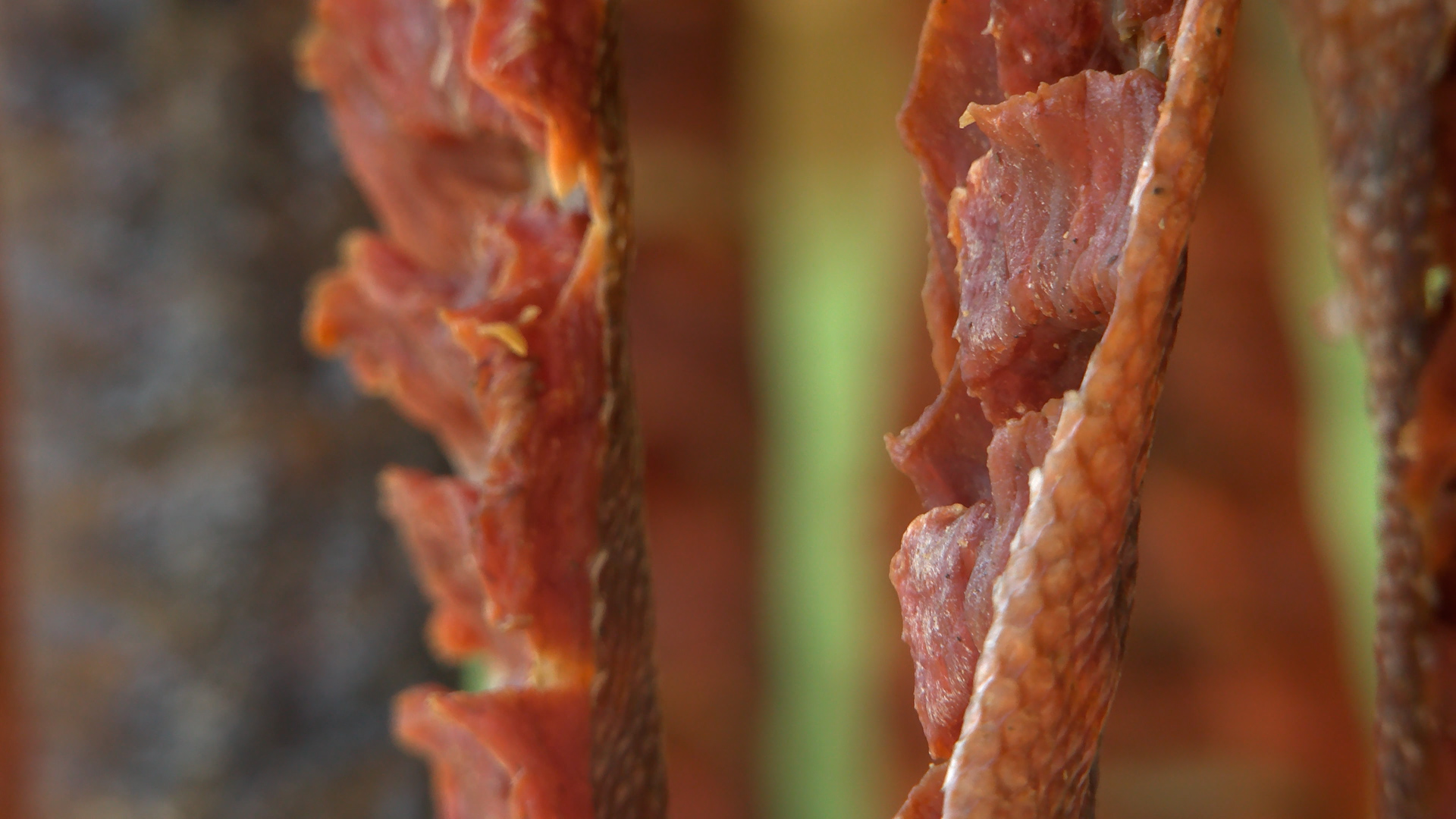
Bonaparte First Nation fish camp preserves tradition and fish
CACHE CREEK, B.C. — For the past two weeks, Keith Zabotel has been camped down on the bank of the Thompson River. He’s spent his days tending these nets, catching some of the sockeye salmon that are coming up the river to spawn.
“This spot has been used by our people for hundreds of years,” Zaobtel says. “For us to come back here and revitalize this area – our people who have come down to visit are just astonished by what we have here.”
Finding the right spot was crucial. Zabotel needed enough space so that community members, including elders and youth, could make the trip to the camp, to help process the fish in different ways.



